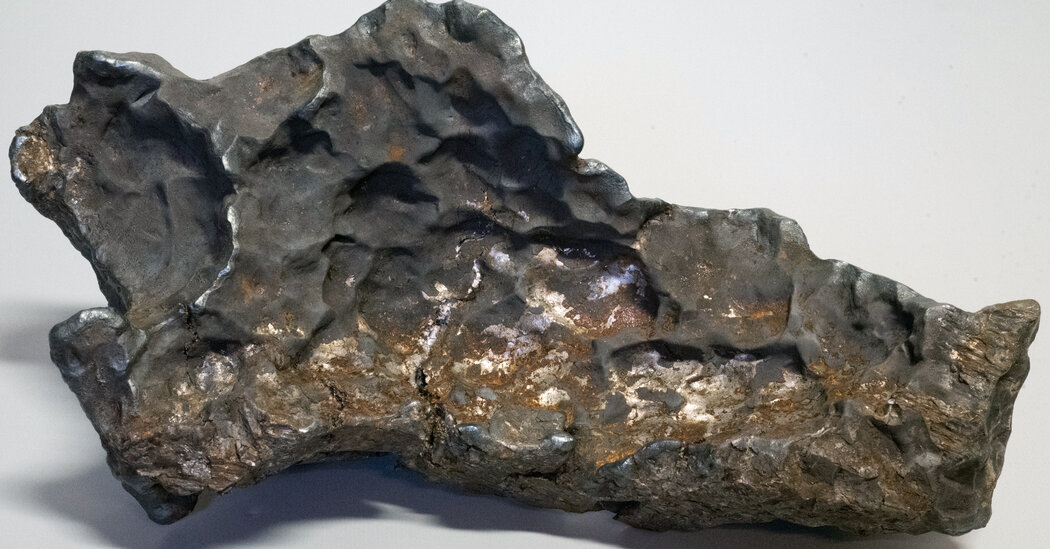Sweden’s courts have been debating claims to a meteorite that fell north of Stockholm, including whether the right to move around in nature, including on private property, extends to claiming a meteorite.
The iron rock’s journey from the depths of space ended with a thud in a dense pine forest, about an hour north of Stockholm, around 10 on a November night four years ago.
Unusually, its trajectory was caught on several cameras in the region used to track meteoroids. That led to a weekslong hunt and an even longer court battle over an unusual question: Who owns an unearthly object that falls to Earth?
The legal case took another turn on Thursday, when an appeals court ruled in favor of the landowner, overturning a decision that had sided with the two men who had recovered the meteorite.
Days after the rock landed, Anders Zetterqvist, a geologist, found the site where it first hit the ground. After several weeks of searching, his friend, Andreas Forsberg, a fellow geologist, found the 30-pound chunk sticking out of the moss where it had ricocheted, about 230 feet away.
“It was the find of a lifetime for me,” he said. “It was so spectacular. And to know that it was just a couple of weeks old.”
Most meteoroids that make it to the Earth’s atmosphere burn up on entry, leaving only a trace of light — called a meteor — in the sky. So-called fresh-fall meteorites are compared to old ones found buried in the ground. The meteorite north of Stockholm, made of iron, was the 10th fresh-fall meteorite to have been found in Sweden, and one of only a handful of fresh-fall iron meteorites found in the world, Mr. Forsberg said.
